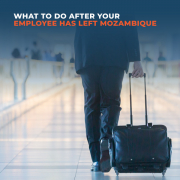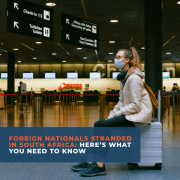NEWS | INVESTMENT OPPORTUNITIES IN NAMIBIA
/in Archived, News /by xp-adminExperts say Namibia has a positive growth outlook with investment potential, combined with a robust macroeconomic environment that is politically stable and regionally competitive. Particularly in private social engagement, such as specialists in health and education, which aim to enhance the provision of social services. It is also a popular travel destination which make the investment in the tourism sector welcomed, especially in accommodation facilities.
How Can You Invest in Namibia?
Investment opportunities may take the form of public-private partnerships either on a per project basis or with equity holdings. Certain utilities may also be wholly owned by investors.
Namibia has embarked on a large-scale programme of renewing and developing its infrastructure, water infrastructure, power generation and transmission infrastructure, as well as the transport and logistics infrastructure, notably road, rail and port.
In addition, Namibia currently has a deficit of affordable serviced land and housing. Accordingly, there are opportunities for investment and operations in this field.
To date no further restrictions are being placed on the acquisition of landownership by foreigners. As long as a foreign investor did not enter Namibia illegally, and his permit does not prohibit the acquisition of immoveable property, he may certainly buy, own and sell real estate in Namibia.
Over the last couple of years many local and foreign investors have turned to property in Namibia as a sound investment. Like all other investments, it is important to understand the requirements on investment through the acquisition of property before making the final decision to invest. Foreigners must keep in mind their goals – to create wealth and to protect that wealth. Whether it is for investment purpose or buying a family home, one would normally put in careful consideration. It is therefore important not to be pressured into making decisions and always keep the following basics in mind: purchase price, deposit needed, transfer and stamp duty payable, attorney’s transfer fees, bond registration fees, valuation and bank admin fees, monthly rates and taxes, renting options, tenancy management and interest rates increase.
What is Required to Obtain an Investor’s Permit?
An Investor’s Permit is granted for two years. The process of obtaining this permit takes up to 3 months to be adjudicated by the Department of Home Affairs in Namibia. Proof of investment, training, and development plans for employees, a letter of approval from the Ministry of Trade, a police clearance certificate from your country of origin, and copies of all qualifications and degrees form part of the quintessential documentation for a successful application for an investor’s permit in Namibia.






